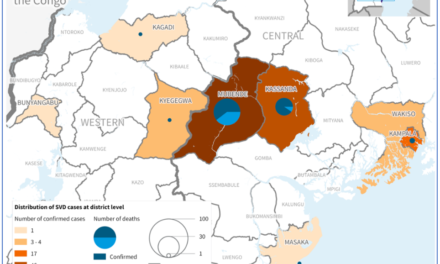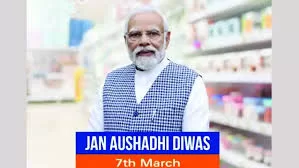New Delhi, August 20, 2024: In a landmark event aimed at bolstering India’s status as a global pharmaceutical leader, Union Minister of Health and Family Welfare & Chemicals and Fertilizers, Shri J.P. Nadda, inaugurated the ‘First Policy Makers’ Forum’ in New Delhi today. The forum, hosted by the Indian Pharmacopoeia Commission in collaboration with the Ministry of Health & Family Welfare and the Ministry of External Affairs, is set to run until August 22, 2024, and features participation from an international delegation of policymakers and drug regulators from 15 countries.
During the event, Shri Nadda highlighted India’s pivotal role as the “pharmacy of the world,” noting that the nation’s generic drugs play a critical role in treating diseases such as malaria, HIV-AIDS, and tuberculosis, which disproportionately affect developing countries. He emphasized, “India has long been identified as the ‘pharmacy of the world’. We are proud that our generic drugs help to treat diseases like malaria, HIV-AIDS, and tuberculosis which are usually considered as the health problems of developing countries.”
The forum aims to foster discussions on the global recognition of the Indian Pharmacopoeia (IP) and the implementation of India’s flagship Pradhan Mantri Bhartiya Janaushadhi Pariyojana (PMBJP), also known as the Janaushadhi Scheme. Delegates from various countries, including Burkina Faso, Equatorial Guinea, Ghana, Guyana, Jamaica, Lao PDR, Lebanon, Malawi, Mozambique, Nauru, Nicaragua, Sri Lanka, Syria, Uganda, and Zambia, are engaging in dialogues to enhance the safety, efficacy, and quality of pharmaceutical products.
Shri Nadda underscored India’s commitment to global health, noting the nation’s significant contributions to eradicating diseases and bridging the healthcare gap in developing nations. He also highlighted India’s leadership in vaccine production, stating, “India has always been the world leader in the production and supply of vaccines, contributing to approximately 60 percent of the global supply of vaccines.”
A major highlight of the forum was the launch of two groundbreaking digital platforms by Shri Nadda: the Indian Pharmacopoeia Online Portal and the Adverse Drug Reaction Monitoring System (ADRMS) software. These initiatives represent significant advancements in the digitalization of India’s pharmaceutical sector. The IP Online Portal will make drug standards more accessible to stakeholders worldwide, while the ADRMS software, developed under the Pharmacovigilance Programme of India, will strengthen the country’s pharmacovigilance infrastructure by facilitating the collection and analysis of adverse drug events.
Shri Nadda remarked on the significance of these digital initiatives, stating that they align with the Government of India’s commitment to promoting environmentally friendly solutions under the ‘Digital India’ campaign. These platforms are expected to enhance the efficiency of drug safety monitoring and standards compliance, further solidifying India’s position as a global leader in the pharmaceutical sector.
Dr. Arunish Chawla, Secretary, Department of Pharmaceuticals, noted the global trend towards generic medicines, which are both cost-effective and adhere to regulatory standards equivalent to those of the World Health Organization (WHO). He emphasized the success of the Janaushadhi Programme in reducing out-of-pocket expenditure for medicines by over 40% in just a decade, and its potential to be a model for other countries seeking to improve access to affordable healthcare.
The forum also provided an opportunity for foreign delegates to engage in in-depth discussions with their Indian counterparts on the safety, efficacy, and quality of medical products. The Department of Pharmaceuticals led focused discussions on the Janaushadhi Scheme, exploring its potential to be adopted internationally.
As part of their visit, delegates will explore a Jan Aushadhi Kendra in Agra and visit state-of-the-art vaccine and drug manufacturing facilities at Genome Valley in Hyderabad, gaining insights into India’s capabilities in drug production and its commitment to advancing global health standards.
The successful launch of these digital platforms and the ongoing discussions at the Policy Makers’ Forum underscore the Government of India’s continuous efforts to ensure that Indian pharmacopoeia and healthcare standards are recognized and respected worldwide, further enhancing India’s leadership in global health and pharmaceutical innovation.












